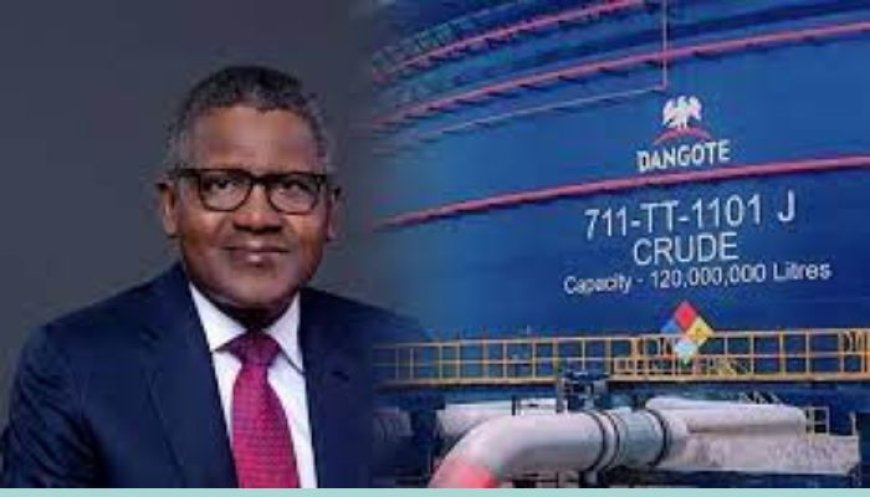Nigeria’s Dangote refinery buying more and more US crude oil

Where does a giant refinery in Nigeria, Africa’s largest oil producer, go to source the raw materials it needs to make fuels for the nation of 228 million people? Try crude fields around Midland in West Texas, about 6,500 miles away.
This year, the mega plant Dangote, near the commercial capital Lagos, bought a third of its crude from the US — the lion’s share of it being the grade West Texas Intermediate – Midland, ship tracking compiled by Bloomberg shows. The proportion has been almost double what it was in 2024, the ramp-up year.
The cargo purchases matter because they could just as easily have been sent on tankers to Europe, helping to determine the world’s most important physical oil price, Dated Brent. The fact they’re not means fewer are available for purchase in the North Sea, slightly limiting availability of benchmark barrels. They also underscore Nigeria’s longstanding challenges to boost output in line with the country’s ambitions.
Dangote’s elevated purchases “probably at the margin supported the Brent market a little,” said Sparta Commodities analyst Neil Crosby. “I expect WTI to keep flowing to Dangote to some degree in the future, but the volumes will depend on price.”
To be clear, the heightened flows are logical. No two crudes are identical and the profits from running them vary depending on what fuels each one churns out.
WTI offers Dangote advantages over Nigerian crudes that result in improved yields of reformate and better gasoline blending capabilities, according to Randy Hurburun, senior refinery analyst at Energy Aspects Ltd.
A spokesman for Dangote said the increased use of US oil reflects the refinery’s rising processing levels and a reduction of Nigerian crude that’s available to buy.
WTI Midland is by far the largest stream of six grades that set Dated, as the benchmark is known among traders. It was added to the benchmark because of concerns that the other five — North Sea grades Brent, Forties, Oseberg, Ekofisk and Troll — were slowly running out, making trading potentially more volatile.
In June and July alone, Dangote is expected to take in 14 million barrels of WTI Midland, according to traders who monitor the company’s buy tenders closely. Trading giant Vitol Group was the biggest supplier of US barrels, lists of vessel bookings show. A spokesperson for the company declined to comment.
The extra WTI flows to the plant also coincided with relatively weak demand for the WTI Midland in Asia in recent months due to Chinese tariffs on US crude and availability of competing supplies of Abu Dhabi’s Murban crude, Crosby said.

 admin
admin 


